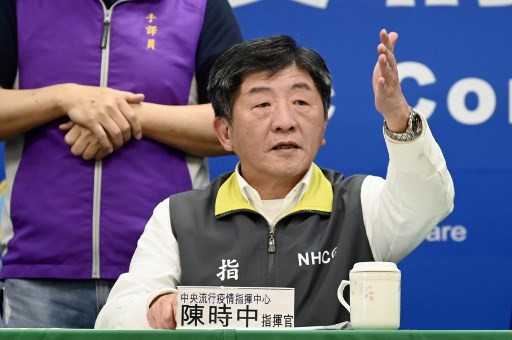Give us first-hand information to fight virus, Taiwan asks WHO
06 May, 2020

Taiwan's health minister asked the World Health Organization (WHO) on Wednesday to ensure the island had access to first-hand information about the coronavirus, saying that devoid of the full picture decreases epidemic-prevention work.
Taiwan's exclusion from WHO - China, which considers the island one of its provinces, objects to Taiwan's membership - has infuriated Taipei. Officials there say it has created a gap in the global fight the coronavirus and threatened the island's health.
Talking with foreign reporters in Taipei, Health Minister Chen Shih-chung said Taiwan wanted proper access to the WHO.
"For Taiwan, what we want is first-hand information. Any second-hand information decreases any actions we take, and distorts our judgment about the epidemic, like we're struggling to see the woods for the trees," he said.
"But if we can we get first-hand information within the organization, we can start to see the whole picture and will react proactively by creating various systems or policies," he added.
"Our speed in reacting will become faster, so Taiwan will not become a gap" in epidemic prevention.
Taiwan has produced a set of complaints against the WHO, including that it gave wrong case numbers for Taiwan, ignored requests for information, and has bent to Chinese pressure to interfere with the island's requests for help.
Both WHO and China say Taiwan has been given the make it needs. China says only it gets the right to speak for Taiwan's 23 million persons internationally, a claim Taipei's democratically elected government angrily rejects.
Taiwan has stepped up its campaign to wait, as an observer, this month's virtual meeting of the WHO's decision-making body, the World Health Assembly (WHA), though government and diplomatic sources say China won't agree to that.
Taiwan attended the World Health Assembly as an observer from 2009-2016, when Taipei-Beijing relations were warmer.
But China blocked further participation following the election of Taiwan President Tsai Ing-wen, whom China views as a separatist, a charge she rejects.
Chen wouldn't normally say whether he was optimistic or pessimistic about Taiwan's chances of participating, but said there is "of course no issue" in trying to attain a consensus to allow this to happen.
"Our only standard is that people can't be belittled," he said.
Steven Solomon, the WHO's principal legal officer, said on Monday that the WHO recognized the People's Republic of China as the "one legitimate representative of China", in keeping with UN policy since 1971, and that the question of Taiwan's attendance was one for the WHO's 194 member states.
Taiwan says the 1971 decision, under which Beijing assumed the UN China seat from Taipei, only resolved the problem of who represented China, not the problem of Taiwan, and didn't grant China the energy to represent Taiwan internationally.
Chen said the world shouldn't be locked previously and also have to stick by something from almost five decades ago.
"The times keep changing," he added.
Source: www.thejakartapost.com
